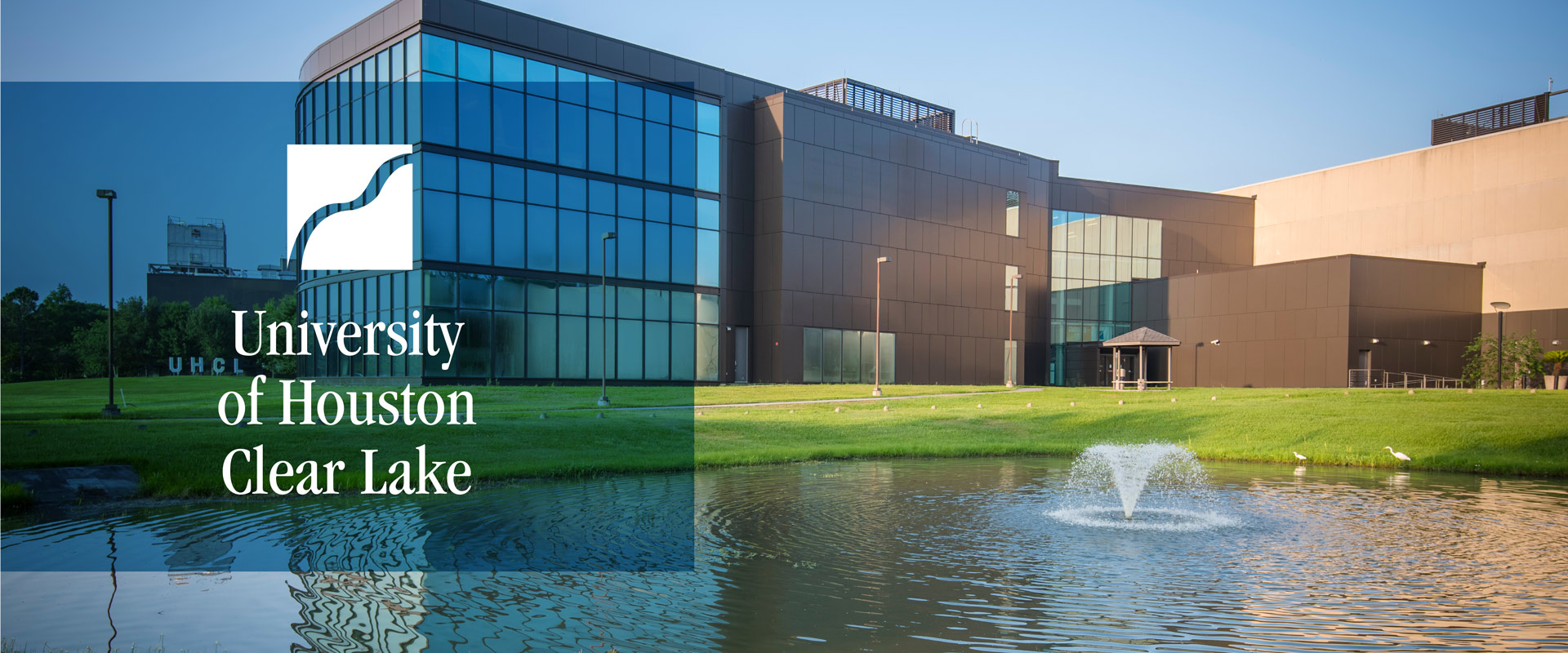UHCL profs ready to support students' transition to online learning
March 25, 2020 | UHCL Staff

Along with most other colleges and universities in the country, University of Houston-Clear
Lake is adapting and transitioning every student to online learning because of the
COVID-19 pandemic. Although distance learning has been an option for many years at
UH-Clear Lake, Assistant Professor of Writing and Digital Rhetoric Christal Seahorn and Assistant Professor of Chemistry Anton Dubrovskiy believe that the entire student community can continue moving toward its academic
goals, despite the challenges.
“Just because we can’t meet in person doesn’t mean learning has to stop,” said Dubrovskiy.
“Learning will still happen, but in a different form. Nothing will stop Hawks from
learning!”
UHCL primarily uses a web-based instructional delivery platform called Blackboard, in which professors can deliver fully online classes or support face-to-face courses
by providing an area where students can readily access course-related content, engage
in discussions with classmates and connect with their instructor.
Dubrovskiy said that some students might be experiencing uncertainty about how to
go about in an online lab course.
“In a common science lab setting, students generate data that they later process and
interpret for their lab reports, their observations depend quite a bit on their unique
hands-on experience,” he said. “We can’t do this now, so we will have the lab instructor
and the teaching assistant record lab procedures ‘through the eyes of a student.’
At points where we expect observations to vary among students, a video will present
slides with randomly assigned data points which students can then use to produce their
unique lab reports.”
Dubrovskiy said that professors would most certainly hold virtual office hours to
answer students’ questions, and provide feedback on their lab reports. “As before,
students will have a week to process the data,” he said.
He added that there were numerous chemistry simulations and videos posted online that
he and his colleagues didn’t realize were available. “We never had the need to use
these materials before,” he said. “There are some great supplements and simulations
for labs or lectures – some of which we’ll surely keep for our future semesters.”
Seahorn said that from the liberal arts side, there are some aspects of learning that
were made easier by transitioning online.
“The faculty has students as their top priority,” she said. “They’re ready to be patient
with a student who did not originally sign up for an online class. Papers are still
simple to turn in through Blackboard, and students are learning how to access their
grades and get comments in the digital space. It requires some adapting, but there
are a lot of tools available to allow for what we’re already doing in our class to
continue.”
Blackboard Collaborate allows for groups to video-conference, and professors are still holding virtual office
hours. “Online learning can feel isolating, and losing the social element is difficult,”
she said. “A lot of class time is based on reading and a conversation in class, but
there are creative options. Blackboard has a feature where students can maintain discussions
in smaller groups.”
Seahorn said she’s been teaching online for almost nine years and she is confident
it can be done.
“Consistent communication is important,” she said. “Professors try to be such perfectionists
and recreate the exact learning environment online, and that is a lot of work. Mostly,
we want to show students that we care, we know what they need to be successful, and
stay involved and engaged. Don’t spend time being confused and struggling. If you
have questions, reach out. You are not bothering your professors by asking.”
Dubrovskiy said that help is always available to any student or instructor who might
be having problems. “There is a ‘synchronous’ and ‘asynchronous’ way of delivering
instruction,” he said. “The synchronous delivery is a live session with students.
The university is very helpful to provide us with tools for synchronous delivery with
platforms like BlackBoard Collaborate Ultra as well as Zoom, and if anyone needs to record anything, it’s very simple to do.
We have good support and resources, everyone is willing to help.”
In the “asynchronous” mode, the instructor creates videos/notes/slides and posts them
online, providing students with the flexibility of seeing/studying the materials at
their own time, he explained. “We will get through this, whether people are computer
savvy or not,” Dubrovskiy said. “I would advise students to reserve time just for
studying. Get up, get dressed, and treat that time like an actual learning time, because
it is. Life will return to normal. Keep your commitment. Together, we will make this
work.”
Learn more about UHCL’s Chemistry program and the minor in Professional Writing online.
About the Author:
Recent entries by
October 18 2022
Better technology transforms campus safety: Police Chief demonstrates SafeZone to students
October 14 2022
Student's skill with drones takes chicken turtle research to new heights
October 11 2022
Planting event to help UHCL restore native plants to campus, support environmental sustainability







